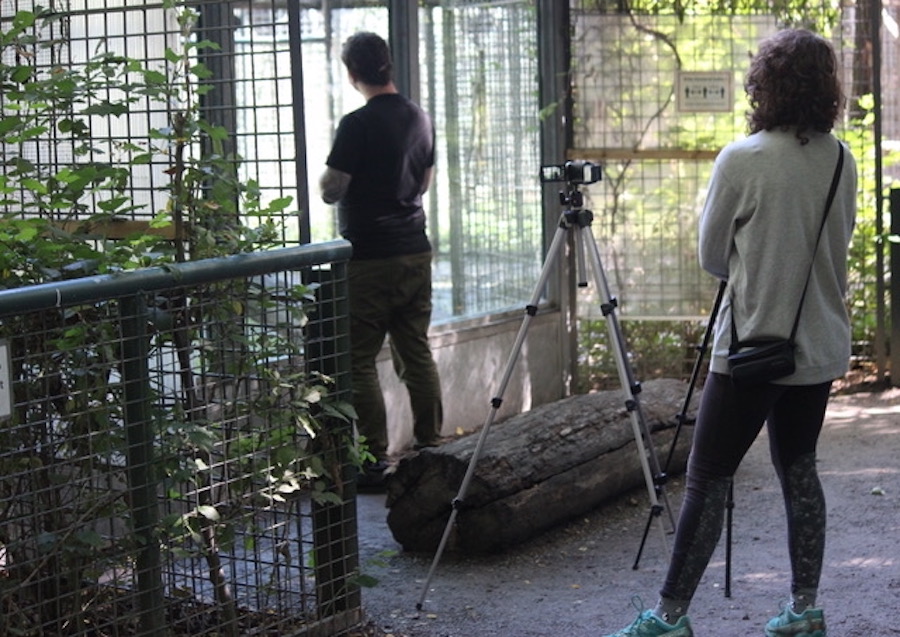attempto online Forschung
10.02.2021
Still no convincing evidence that chimpanzees spontaneously imitate humans
A recent study led by researchers at the University of Tübingen (Germany), Dr. Alba Motes-Rodrigo and Dr. Claudio Tennie from Tübingen’s Department of Early Prehistory and Quaternary Ecology, investigated chimpanzees’ imitation skills, i.e. the ability to acquire behavioural know-how by copying somebody else. In their first experiment, the researchers assessed whether 32 chimpanzees spontaneously imitated zoo visitors at Leintal zoo (Germany). During the experiment each visitor was asked to try to make the chimpanzees copy what he/she was doing. This first experiment was an attempt to replicate the results of a previous publication (Persson et al. 2017 Primates) that reported imitation of zoo visitors at a high rate in a group of five chimpanzees. This finding warranted Persson et al. an Ig Nobel prize, an award for unusual achievements in scientific research
In the Tübingen researchers’ second experiment, chimpanzee imitation was again tested, but under more controlled conditions. Chimpanzees were individually presented with behavioural demonstrations of six actions performed by a familiar zoo keeper. These actions differed in their characteristics: some were familiar to the chimpanzees, some produced a noise and some involved physical contact with the chimpanzee's body. The aim of this second experiment was to assess whether the type of actions demonstrated to the chimpanzees influenced the probability of imitation.
Overall, the authors did not find clear support for the idea that chimpanzees imitate actions demonstrated by humans in either experiment. Out of hundreds of opportunities for copying across both experiments, only six cases were found in which human and chimpanzee actions matched – which could well be due to chance, and not imitation. Consequently, the results from both experiments run by Motes-Rodrigo et al. show that chimpanzees have extremely limited spontaneous imitative abilities at best. In addition, these findings show that the previous Ig Nobel prize winning paper (Persson et al. 2017) failed to replicate once a bigger sample was tested.
This new study has the added value of being one of the first so-called Registered Reports in the field of animal behaviour and cognition. This type of study is peer-reviewed twice – once before data collection, and once after. Registered Reports and other initiatives of the Open Science Movement aim to address limitations of scientific publishing, such as a publication bias against negative findings and selective reporting of results and data.
“Tools & Culture among Early Hominins” research group
Reference:
Motes-Rodrigo A, Mundry R, Call J, Tennie C. 2021 Evaluating the influence of action- and subject-specific factors on chimpanzee action copying. R. Soc. Open Sci. 8: 200228. https://doi.org/10.1098/rsos.200228

